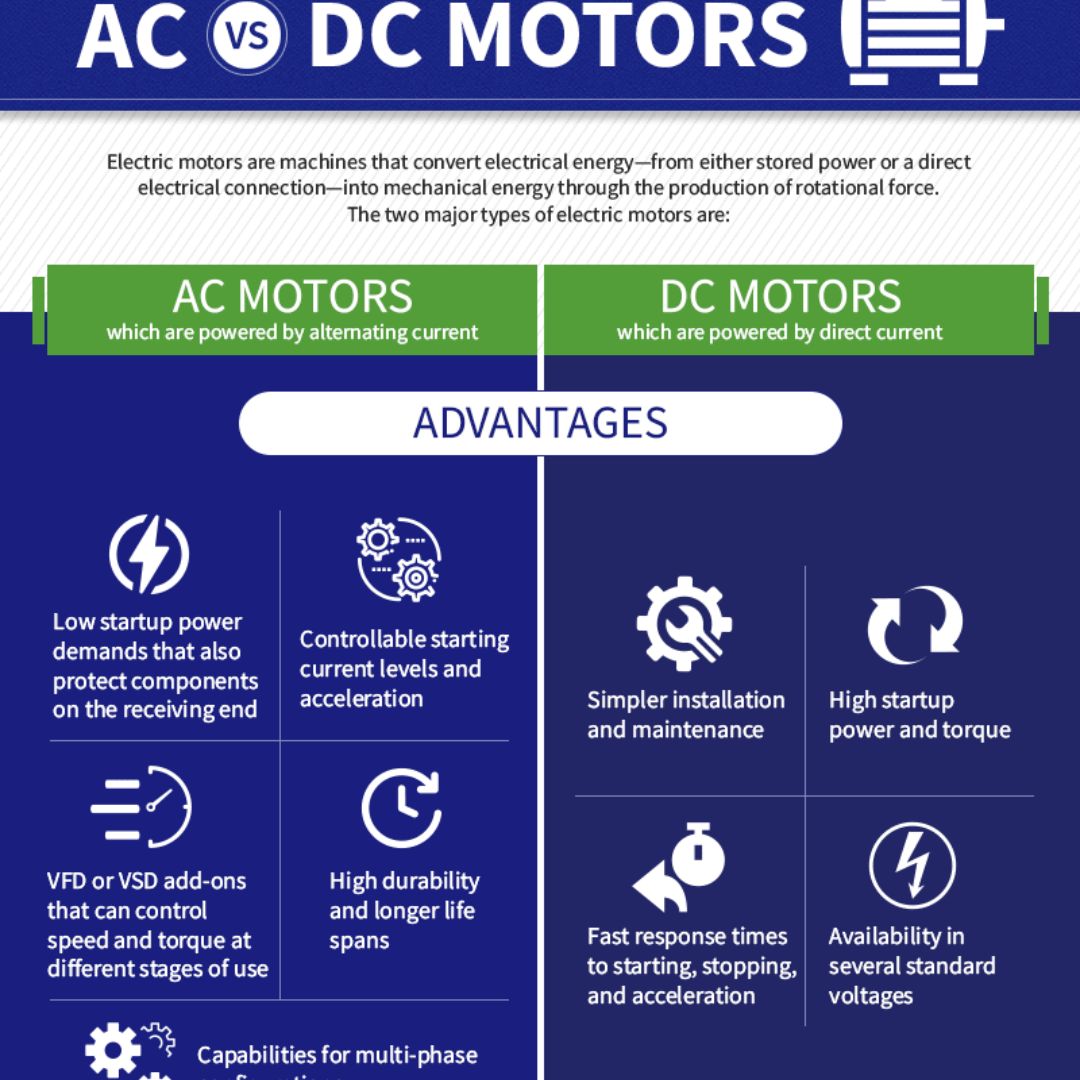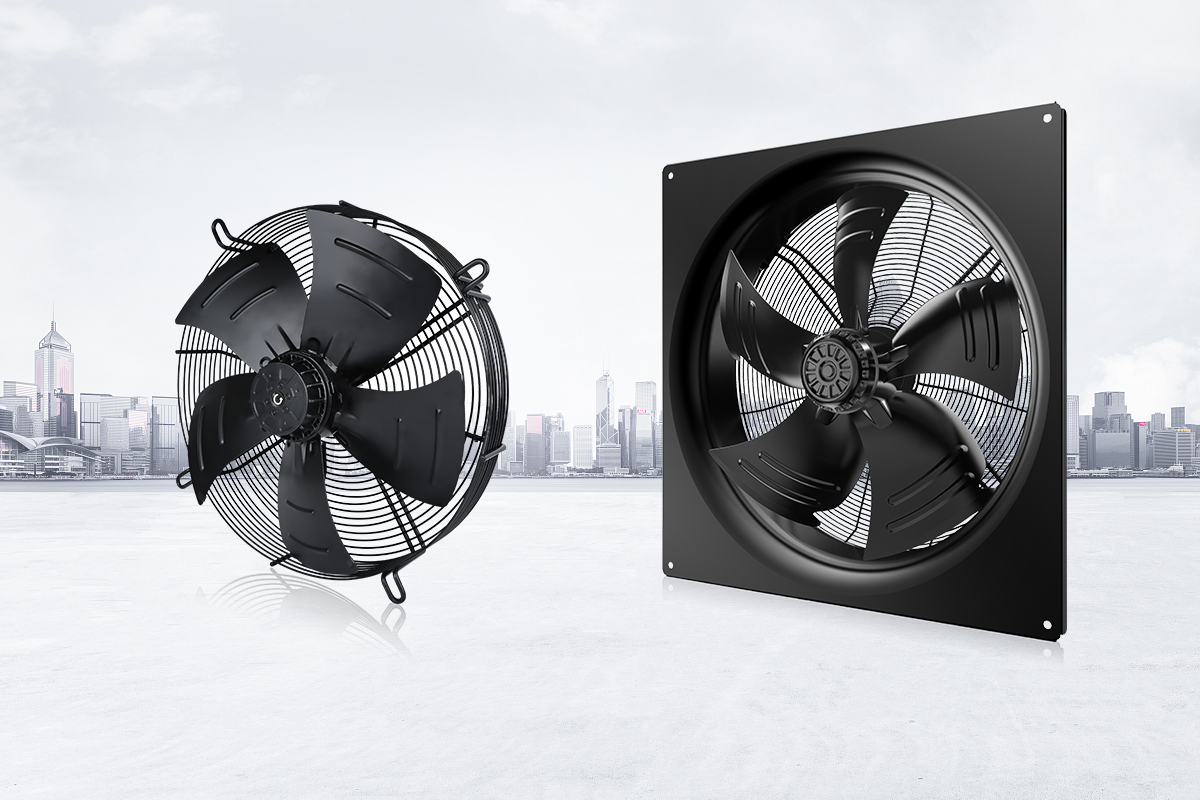Painstaking Lessons Of Info About Is DC Better Than AC For Fans

Innovative Baseplate Cooling Design Provides A Better Option Than Fans
The Great Fan Debate
1. Understanding the Core Difference
Okay, let's get straight to it. We're talking about fans, those wonderful devices that keep us cool and comfortable. But beneath their spinning blades lies a choice: AC or DC? Alternating Current (AC) and Direct Current (DC) are two different ways electricity flows. AC, like what comes out of your wall socket, changes direction periodically. Think of it as electricity doing the cha-cha. DC, on the other hand, flows in one direction only, like a disciplined soldier marching forward. Batteries, for instance, provide DC power.
So, why does this matter for fans? Well, most traditional fans you plug into the wall run on AC power. These fans typically use an AC motor, which is designed to operate with the alternating current. However, with advancements in technology, DC fans are becoming increasingly popular. They utilize a DC motor, which, as the name suggests, requires DC power. This often means there's a little converter inside (or in the power adapter) that changes the AC from your wall into DC for the motor.
But the real question is, which one is actually better for powering our breezy companions? That's what we're here to unravel. Forget boring technical jargon; we'll break it down in a way that even your grandma can understand. Prepare for a showdown of epic proportions — well, maybe not epic, but definitely informative!
Keep in mind that the 'better' fan isn't just about the current type. It's about efficiency, noise, features, and even your budget. We'll explore all those angles so you can make an informed decision when choosing your next fan. Think of this as your ultimate fan-buying guide, minus the overwhelming technical details.

Energy Efficiency
2. The Efficiency Showdown
When it comes to energy efficiency, DC fans often take the crown. Here's why: DC motors are generally more efficient than their AC counterparts. This means they use less electricity to produce the same amount of airflow. Think of it like this: an AC fan might be a gas-guzzling SUV, while a DC fan is a hybrid car sipping fuel sparingly. Over time, that difference in energy consumption can really add up, saving you money on your electricity bill and reducing your carbon footprint. It's a win-win!
But wait! Before you rush out and replace all your AC fans with DC models, it's important to consider the specific fan models. Not all DC fans are created equal, and some AC fans can be surprisingly efficient. Look for Energy Star ratings and check the wattage of the fan to get a better idea of its energy consumption. A little research goes a long way in this department.
Another factor contributing to DC fan efficiency is their ability to operate at variable speeds. With many DC fans, you can precisely control the fan speed, using only the power necessary to achieve your desired level of coolness. AC fans, especially older models, often have limited speed settings, forcing you to run them at higher speeds (and higher energy consumption) even when you don't need that much airflow. It's like driving your car at full speed even when you're just cruising down a quiet street.
So, while DC fans often have the edge in energy efficiency, don't make assumptions. Always compare specific fan models and consider your own usage patterns. If you only use your fan occasionally, the energy savings might be minimal. But if you're running your fan all day and night, switching to a more efficient DC model could make a noticeable difference to your wallet and the environment. It's all about making an informed choice based on your individual needs.

7 Reasons Why AC Motors Are More Efficient Than DC (Explained!)
Noise Levels
3. The Decibel Dilemma
Ah, noise! The bane of many a restless sleeper. If you're sensitive to noise, the decibel level of your fan is a crucial factor to consider. In general, DC fans tend to be quieter than AC fans. This is because DC motors often operate more smoothly and with less vibration than AC motors. Think of it as the difference between a finely tuned engine and a rumbling tractor.
That being said, noise is subjective, and what one person considers quiet, another might find annoying. Furthermore, the design and build quality of the fan play a significant role in its noise level. A poorly constructed AC fan might be incredibly noisy, while a well-engineered DC fan could be whisper-quiet. It's not always a simple AC vs. DC comparison.
When shopping for a fan, look for models that advertise low noise levels or have customer reviews that specifically mention their quiet operation. Some manufacturers even provide decibel ratings for their fans, allowing you to compare them directly. Remember that even small differences in decibels can make a noticeable difference in perceived noise.
Consider where you'll be using the fan. If it's for your bedroom, a quiet fan is essential. If it's for a noisy workshop, noise might be less of a concern. And don't forget that fan speed also affects noise levels. Even a quiet fan can become noisy at its highest setting. So, choose a fan that offers a range of speeds and allows you to find a comfortable balance between airflow and noise.

Features and Control
4. Taking Control of Your Cooling
In the realm of features and control, DC fans often shine. One of the biggest advantages is their ability to offer a wider range of speed settings compared to traditional AC fans. While AC fans typically have just a few speed options (low, medium, high), DC fans can have many more, allowing you to fine-tune the airflow to your exact preference. It's like having a volume knob instead of just a few preset volume levels.
Many DC fans also come with additional features, such as remote controls, timers, and even smart home integration. You can adjust the fan speed, set a sleep timer, or even control the fan from your smartphone. These features add convenience and flexibility to your cooling experience.
AC fans, on the other hand, tend to be more basic in terms of features. While some newer AC models may offer a remote control or a few additional speed settings, they generally lack the advanced control options found in DC fans. This isn't necessarily a bad thing if you prefer simplicity and don't need all the bells and whistles.
The presence of various features is highly appealing to me. Consider what features are most important to you. Do you value precise speed control? Do you want a remote control for convenience? Or do you simply need a fan that turns on and off? Your answers to these questions will help you determine whether a DC or AC fan is the better choice for your needs.

AC Vs DC A Complete Guide On What You Need To Know IBE Electronics
Cost Considerations
5. Budgeting for Airflow
Let's talk about the elephant in the room: cost. Generally speaking, DC fans tend to be more expensive than AC fans. This is due to the more complex technology involved in DC motors and the additional features often included. However, the price difference can vary depending on the brand, model, and features.
While the initial cost of a DC fan might be higher, it's important to consider the long-term savings in energy consumption. As we discussed earlier, DC fans are typically more energy-efficient, which can translate to lower electricity bills over time. So, you might end up saving money in the long run, even though you paid more upfront.
AC fans, on the other hand, are generally more affordable. This makes them a good option for budget-conscious consumers who don't need all the fancy features of a DC fan. If you only need a basic fan for occasional use, an AC model might be the most practical choice.
Ultimately, the best way to determine the cost-effectiveness of a fan is to compare the initial price, the estimated energy consumption, and the features offered. Consider your budget, your usage patterns, and your desired level of features when making your decision. Don't just focus on the sticker price; think about the total cost of ownership over the lifespan of the fan. So, is DC better than AC for fans? There isn't a straightforward answer, the answer is simply; it depends on the fan you want!

AC Vs DC Fans Which One Should You Choose?
FAQ
6. Frequently Asked Fanatics
We know you still might have some questions buzzing around your head like a trapped fly. So, let's tackle some of the most frequently asked questions about AC and DC fans.
Q: Are DC fans really that much quieter than AC fans?A: Generally, yes. But it depends on the specific models. Look for noise ratings (in decibels) when comparing fans. Reading customer reviews can also provide valuable insights into real-world noise levels. Don't assume all DC fans are silent, and don't dismiss all AC fans as noisy beasts.
Q: Will switching to a DC fan save me a lot of money on my electricity bill?A: It depends on how often you use your fan and the difference in energy consumption between your old fan and the new DC fan. If you run your fan all day and night, the savings could be significant. If you only use it occasionally, the savings might be minimal. Use an energy consumption calculator to estimate the potential savings based on your usage patterns and electricity rates.
Q: Are DC fans more difficult to install or maintain?A: No, not at all. Most DC fans are just as easy to install and maintain as AC fans. Some may require a little extra wiring if they come with a remote control or smart home integration, but the installation process is generally straightforward. As for maintenance, simply keep the blades clean and lubricate the motor occasionally, just like you would with an AC fan.
Q: Are DC fans better for the environment?A: Because DC Fans are more energy efficiency, this will reduce your carbon footprint and will be better to the environment. But it all goes back to how you are using the fan.